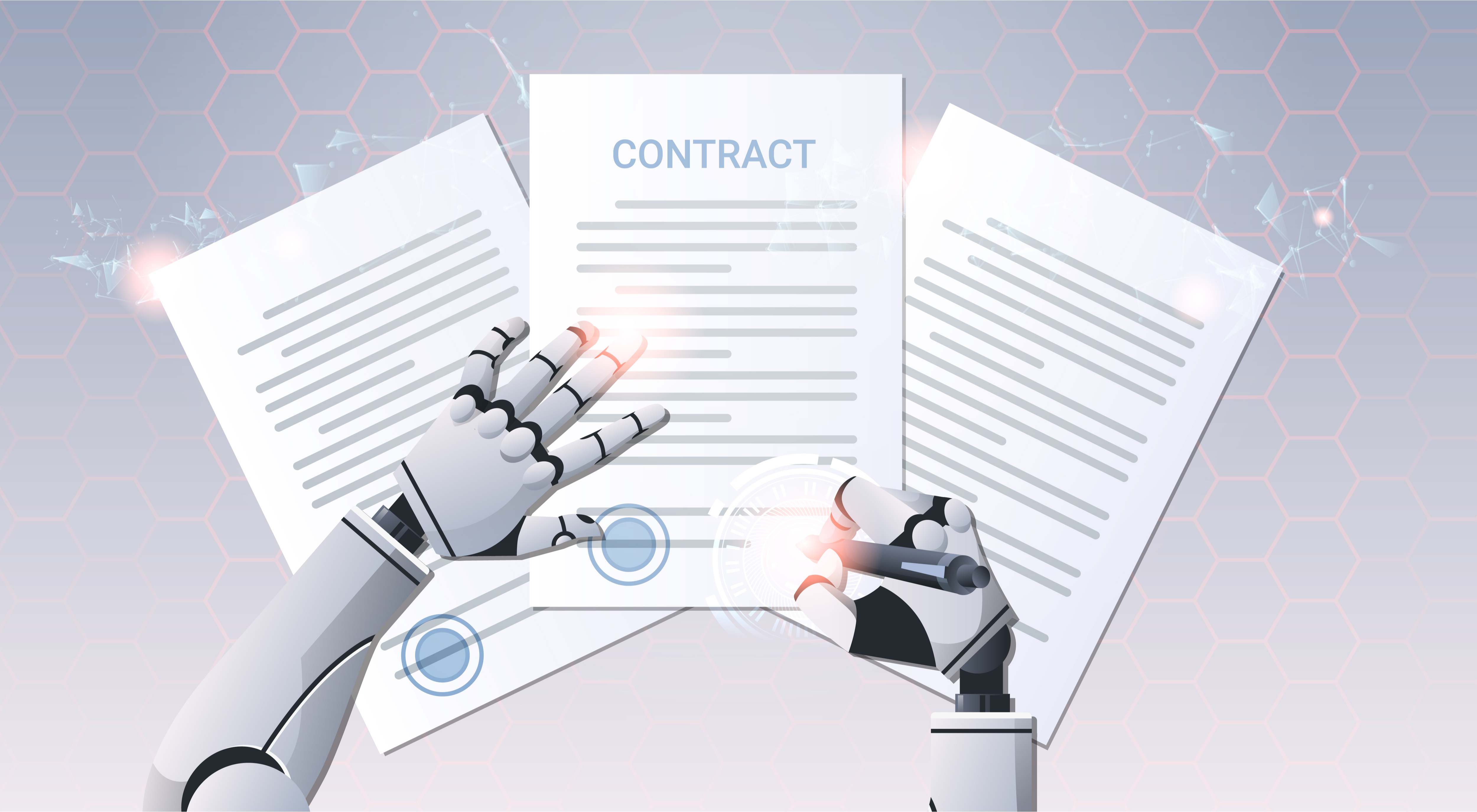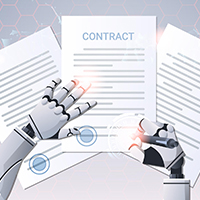Cutting-edge technology is a catalyst for business innovation. Why should this advantage be reserved only for companies that sell products or perform logistics and management services?
Legal tech innovations apply business tools and methodologies to enhance processes, expedite delivery, and extend cloud collaboration for corporate legal departments and law firms. Increasingly, forward thinking corporate legal departments are leveraging legal analytics to conduct research and develop effective contracting strategies.

Advances in legal tech powered by artificial intelligence (AI) also expedite the contract review and negotiation process. Technological innovations in the corporate legal field enable legal departments to ensure adherence to in-house playbooks and government regulations. By leveraging these innovations, corporate legal departments have accelerated negotiations and allowed lawyers to concentrate on higher-value responsibilities.
AI brings many advantages to corporate legal departments. Here are a few reasonable expectations when it comes to AI’s effect on your legal department’s innovations.
Legal Self-Service
Traditionally, legal departments have created analog playbooks to share institutional knowledge, increase compliance, and remove inefficient practices. As it stands, inefficiencies cause legal teams to lose 5 to 40 percent of value on a given deal, according to the Harvard Business Review.
The emergence of AI Digital Playbooks marks a significant advance in contract negotiation playbooks by eliminating the shortcomings of static, or analog, playbooks. Since AI Digital Playbooks ensure strict adherence to the playbook’s guidance, AI Digital Playbooks protect teams from unnecessary errors and risks while institutionalizing best practices and freeing attorneys and legal staff from rote document review. Additionally, emerging legal tech tools can deliver automated attorney-quality redlining with intelligent guidance based on playbook standards to return a fully marked-up contract.
Accelerated Negotiations
“In minutes, attorneys and legal staff can accomplish tasks that would have formerly required hours, or days, to complete.”
Bottlenecks often slow the contract negotiation process; however, innovations in legal tech now allow corporate legal departments to remove the obstacles responsible for inefficiencies in the contract negotiation lifecycle. As a result, attorneys and legal staff can guide a streamlined process while focusing on higher-value tasks.
Likewise, AI Digital Playbooks help attorneys avoid the habit of going after low-value negotiating points. With new legal tech tools, contract reviewers have guard rails and guidelines to direct their focus. Attorneys can prioritize their review by concentrating on areas where edits are suggested.
Transitioning to an AI Digital Playbook delivers fast and powerful results. In minutes, attorneys and legal staff can accomplish tasks that would have formerly required hours, or days, to complete.
Elimination of Repetitive Work
Innovations in legal tech and AI enable attorneys to recognize outliers to a la legal department’s codified rules on how to negotiate different agreement types. By assessing the vault of contracts and the legal department’s negotiation playbook to identify standards, AI software can alleviate once unavoidable and repetitive work. Additionally, these innovations incorporate more than just the legal team’s internal playbook rules; they also accommodate recently-passed statutes and regulations to ensure compliance.
 Modern Corporate Legal Finds Competitive Value in Legal Tech Innovation
Modern Corporate Legal Finds Competitive Value in Legal Tech Innovation
Legal tech innovations have enabled lawyers and corporate legal departments to discover the benefits of AI. Newly available tools—such as AI-powered contract negotiation platforms—allow legal departments to complete tasks in mere minutes while others might spend a day or more on the same job.
While clients and stakeholders are just beginning to ask about AI legal tech today, they will be demanding it within a few years. Early adopters of legal tech innovations can reap the benefits now, gaining an early competitive advantage.


